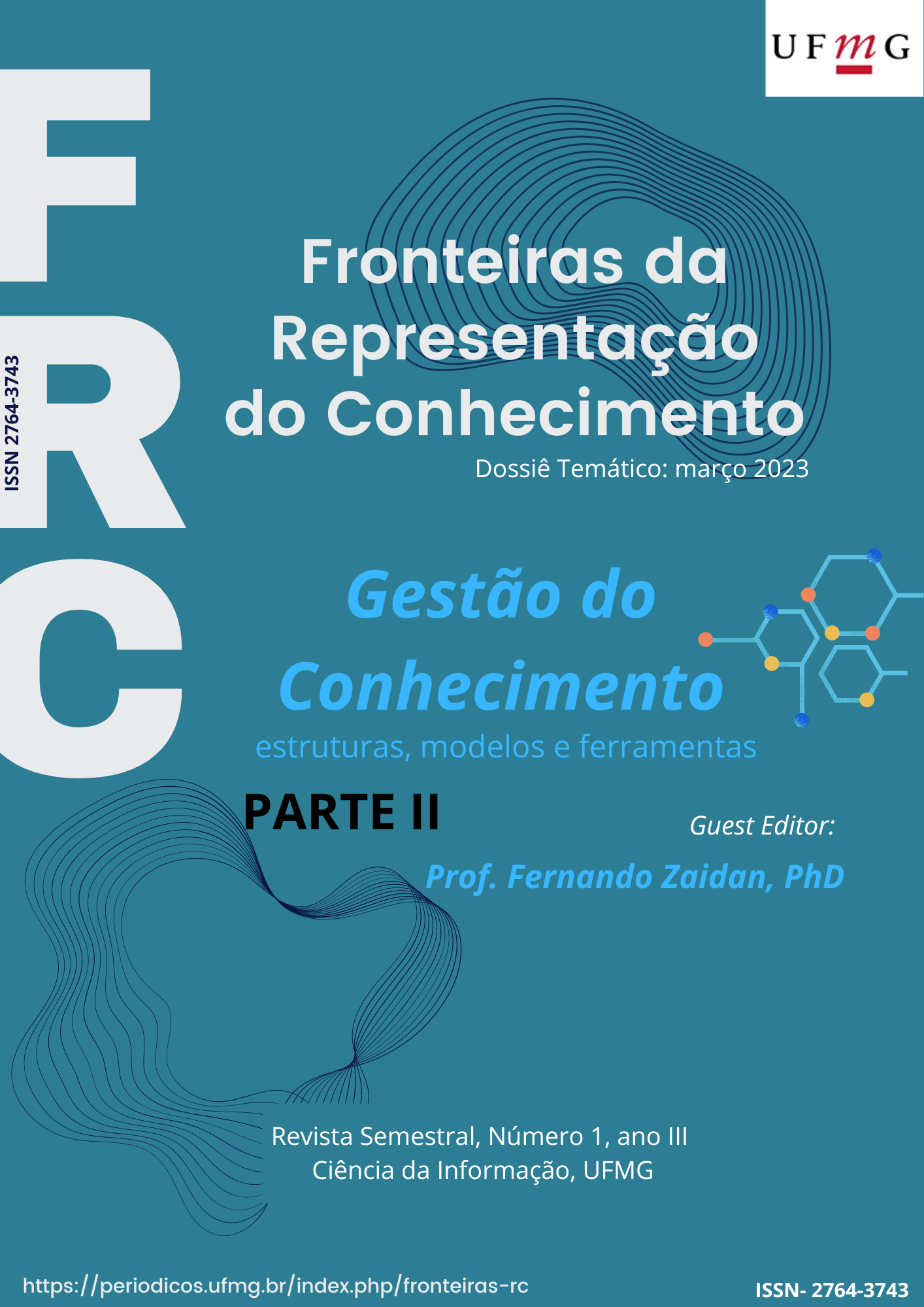Knowledge Management Practices in Polícia Militar de Minas Gerais a dialogue between tradition and contemporaneity in favor of organizational learning
Main Article Content
Abstract
This paper was written aimed to identify and analyze the Knowledge Management (KM) practices ongoing in the Polícia Militar de Minas Gerais (uniformized police agency of Minas Gerais State), addressing a comparison with the practices documented in KM specialized papers. Thus, where searched for publications in Brazil and abroad, where KM practices in public and private organizations were identified. After literature review, a bibliographic and document analysis of laws was done, approaching internal rules, electronic sites and other existing documents of the organization. The finds points that the organization already performs talent bank practices, GC holders as content spaces and tools of other practices related by the specialized literature.
Article Details
Issue
Section

This work is licensed under a Creative Commons Attribution 4.0 International License.
From: https://creativecommons.org/licenses/by/4.0/
You are free to:
- Share — copy and redistribute the material in any medium or format
- Adapt — remix, transform, and build upon the material
- for any purpose, even commercially.
- The licensor cannot revoke these freedoms as long as you follow the license terms.
Under the following terms:
-
Attribution — You must give appropriate credit, provide a link to the license, and indicate if changes were made. You may do so in any reasonable manner, but not in any way that suggests the licensor endorses you or your use.
- No additional restrictions — You may not apply legal terms or technological measures that legally restrict others from doing anything the license permits.
Notices:
- You do not have to comply with the license for elements of the material in the public domain or where your use is permitted by an applicable exception or limitation.
- No warranties are given. The license may not give you all of the permissions necessary for your intended use. For example, other rights such as publicity, privacy, or moral rights may limit how you use the material.


